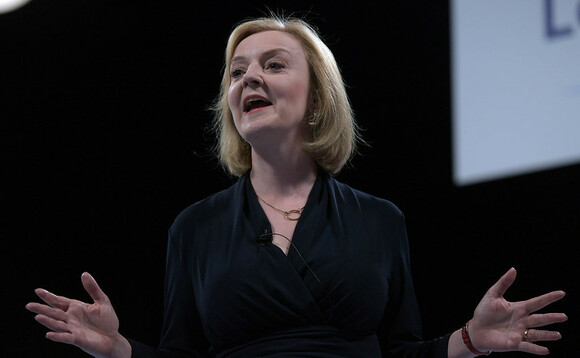Liz Truss, until now foreign secretary and a former trade minister, will succeed Boris Johnson as Conservative party leader and the UK's new prime minister, following a bitter leadership contest against former chancellor Rishi Sunak.
She will take office on Tuesday (6 September) after the outgoing and incoming prime ministers have met with Queen Elizabeth II at her castle in Balmoral, Scotland.
While the details of Truss's plans for her Cabinet and Downing Street staff have not yet been confirmed, the three most senior ministerial roles of chancellor, home secretary and foreign secretary, appear to have been decided.
Kwasi Kwarteng is set to be appointed as Chancellor of the Exchequer, Suella Braverman as home secretary and James Cleverly as foreign secretary, according to numerous reports.
Truss vs Sunak: Next PM risks fuelling inflation and spooking financial markets
The announcement comes almost two months after Boris Johnson quit in the wake of a series of scandals. Since then, the outlook for growth has weakened, annual inflation is running above 10% and frustration over the rising cost of living has pushed hundreds of workers to go on strike.
The British pound has registered its most dramatic monthly decline against the dollar since October 2016 - the height of the Brexit referendum fallout, hitting its lowest level against the dollar in more than two years.
Truss will be inheriting one of the toughest economic and social climates the UK has faced in years, fuelled by an energy crisis that is squeezing the living standards of households across the country.
OBR confirms work on forecast for emergency budget
Yesterday (4 September), she told the BBC she would "act immediately" to announce plans to help struggling households, with the announcement coming within a week of her taking office. The new PM is said to be considering freezing energy bills in response to the spiralling cost to households.
Throughout her campaign, Truss has teased plans and policies that include reviewing the Bank of England's mandate, breaking up regulators and scrapping many more EU-era laws to attract companies to London.
One of her first moves as prime minister is expected to be an emergency budget, which is likely to include substantial tax cuts and significant new expenditure.
Truss weighs plans to merge top financial regulators - reports
Speaking to Investment Week, industry commentators said that some of her policies could exacerbate inflation and create a scenario in which interest rates would have to remain higher for longer.
"This would undoubtedly be bad for UK assets, UK investors, mortgage owners and the pound, and could well offset the benefit of the proposed tax cuts to help with the cost of living," said James Penny, CIO at TAM Asset Management.
Sterling exchange rates have continued to drift this morning. In early trading, sterling dropped half a percentage point to a new two and a half-year low of $1.1444 and is expected to plummet further following the announcement.





